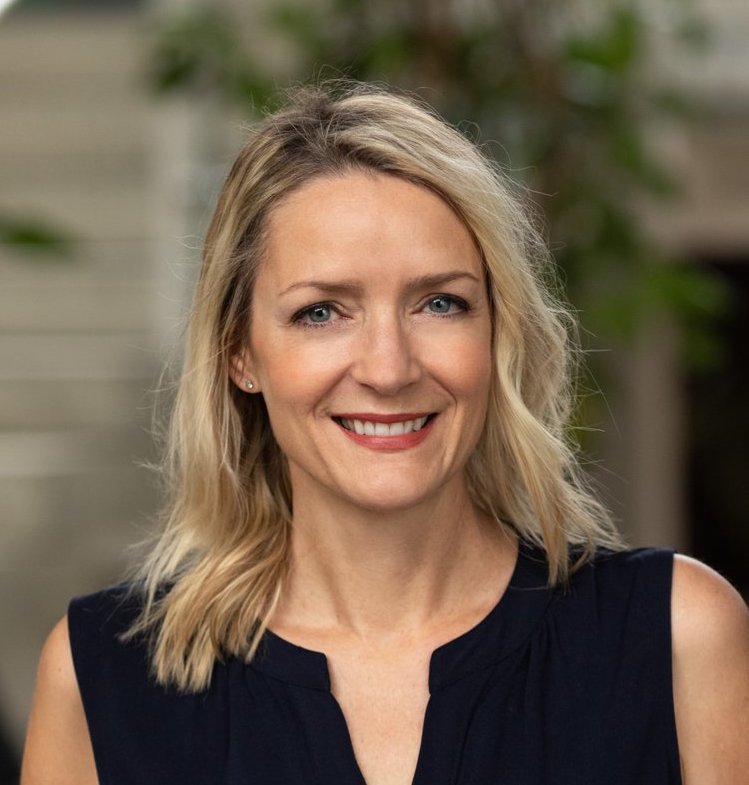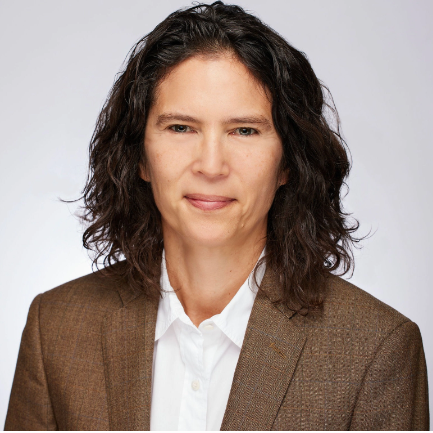"Ready to Make Our Mark." An Immigrant Group Becomes a Powerful Force in Philanthropy
/Cal State Northridge has become among the beneficiaries of Iranian-American giving. photo: Ken Wolter/shutterstock
A few years back, we predicted that the "golden age" of Southern California philanthropy was imminent. Recent developments suggest that the stars have finally aligned.
While entertainment fortunes are larger than ever, big money has also been made in real estate, healthcare, tech, and finance. Thanks to a surge in arts philanthropy, the city has become, to quote Eli Broad, one of the "four major cultural capitals of the world." And the region's universities are rolling in cash—USC easily met a $6 billion campaign goal under its soon to be ex-president C. L. Max Nikias, while UCLA raised over a half-billion dollars last year. San Diego, meanwhile, has been the scene of large-scale giving by big donors like Qualcomm founder Irwin Jacobs and credit card mogul Denny Sanford.
Yet there are other, less headline-grabbing drivers behind the Southern California's philanthropic boom. Consider, for instance, the steadily growing influence of the region's Iranian-American donors.
Between 300,000 and a half-million Iranian-Americans now call Southern California home, more than any other region in the U.S. And while they've always had a formidable philanthropic presence in the region, anecdotal evidence finds them ramping up their giving across areas like the arts, education, and Jewish causes.
I'll take a closer look at some of the prominent players in a moment. But first, some important demographic context is called for.
Iranian immigrants began arriving in the U.S. in the 1960s and 1970s. Immigration intensified during the 1979 Iranian Revolution and the Iran-Iraq War. A vast majority of these refugees ended up in Southern California and in Beverly Hills, where 22 percent of the population is of Iranian descent.
Many of these refugees hailed from Iran's middle- and upper-class families. The Los Angeles Times once called revolution-era Iranian Jews, in particular, "one of the richest waves of immigrants ever to come to the United States." But immigrants brought more than just money. According to Iranian real estate broker Stephan Saeed Nourmand, "they brought their talents too. There were doctors, lawyers, businessmen, retailers, manufacturers."
Many of these immigrants established successful businesses and inevitably turned to philanthropy.
Consider the journey of Younes Nazarian. Born in Iran in 1929, he emigrated to the states during the revolution and settled in Beverly Hills. He became one of the largest importer/exporters of construction machinery and equipment in Southern California. He also became an early investor in San Diego-based Qualcomm, Inc. and currently serves as the chairman of Nazarian Enterprises, a venture capitalist group for green renewable energy.
Giving flows through the Younes & Soraya Nazarian Family Foundation, run by his daughter Sharon, and its Israeli sister organization, the Ima Foundation. The Nazarian Family Foundation gave a $5 million gift to UCLA to establish the Younes and Soraya Nazarian Center for Israel Studies, which "promotes the study of the history, culture and society of Israel as a modern Jewish and democratic state."
The foundation is also a big player in the region's arts community. It created the Soraya Sarah Nazarian Program in Fine Arts at the American Jewish University and has supported the L.A. Philharmonic and the Skirball Cultural Center. Last September, Cal State University (CSU) Northridge announced a $17 million gift from the Nazarian Family Foundation in support of its Valley Performing Arts Center.
Younes' brother, Izak Parviz Nazarian, who passed away last year at 88, was another prominent Iranian-American philanthropist. Born in Tehran, Izak settled in Beverly Hills with his brother Younes. He was a co-founder of venture capital and real estate fund Omninet Capital of Beverly Hills and a former board member of Qualcomm.
As a philanthropist, Nazarian supported Sinai Temple in Westwood and the Nessah Educational and Cultural Center, a Beverly Hills synagogue serving Persian-Americans. He also founded Magbit Foundation Los Angeles, which continues to help students struggling to finish college.
Paul Merage was born in Persia in 1934 to a Jewish family, and now calls Newport Beach home. After emigrating to the states, he and his brother David created Chef America—known for such culinary innovations as the frozen waffle and Hot Pockets—which Nestle purchased for $2.6 billion.
The Merage family has a bundle of foundations and philanthropic interests, including Jewish causes, arts, and early education. Paul, in particular, has a special fondness for Southern California organizations. Previous gifts include $30 million to the School of Business at UC Irvine and $3 million to the Merage Jewish Community Center of Orange County. He is a board member and a leading donor for the Pacific Symphony and serves on the board of the Orange County Performing Arts Center. As of 2011, his net worth stood at approximately $5 billion.
The philanthropic work of the Nazarian brothers and the Merages also underscores the breadth of Southern California's vibrant Iranian-Jewish community, whose roots can be traced to Khomeini's revolution, which drove about half of Iran's 80,000 Jews into exile. As the Jewish Journal notes, the region's Iranian Jews have set up and funded many of their own nonprofit groups, including the Hope Foundation, the Jewish Unity Network, the SIAMAK organization, and others, to support Iranian-Jewish families struggling financially.
Fariborz Maseeh is an Iranian-born pioneer in the field of micro-electro mechanical systems and founder and managing principal of the Newport Beach-based Surlamer LLC, an investment management firm. He founded the Massiah Foundation in 2001 with the goal of pursuing investment opportunities that "will create the most significant social impact per invested capital." The foundation's main funding areas include education, health and arts/culture.
Support to Southern California institutions includes creating the first independent campus center for Persian Studies and Culture and UC Irvine, the Maseeh Endowed Entrepreneurship Prize Competition at USC, and funding for the MIND Research Institute and California Zoroastrian Center.
On a tangential note, Masseh was also one of the funders to take a stand against President Trump's travel ban.
Upon announcing a $5 million gift to his alma mater, Portland State University, he described the ban as a policy that punishes people living under politically oppressive regimes in the Middle East. "Statistically, amongst those people, there are a lot of bright, innovative people," he said. "We should go and try to get those people, kind of save them from the oppression of their governments and the circumstances of their politics." The contributions to U.S. society of Iranian-Americans who fled their country in the 1970s underscores the upsides of an open-door policy for refugees.
A big institutional funder in Southern California is the Farhang Foundation. It was established in 2008 in Los Angeles with a mission to celebrate and promote Iranian arts and culture.
In 2015, the foundation and UC Irvine launched the first-ever Persian Studies minor program in the School of Humanities. The foundation also enjoys a long relationship with UCLA, where it is the sole sponsor of the UCLA Film & Television Archive’s annual Celebration of Iranian Cinema. In early May, the foundation awarded a $1 million gift to the UCLA Herb Alpert School of Music to establish an academic minor in Iranian music.
Half of the nation's Iranians reside in the state of California alone, so it's also worth noting the substantial presence of funders a few hundred miles up Highway 101. One such philanthropist is San Jose-based entrepreneur and computer scientist Bita Daryabari.
Born in Iran, she received a B.S in computer science from California State University, Hayward, and an M.S. in telecommunications management from Golden Gate University in San Francisco. Her giving focuses on supporting Iranian immigrants and research on Iranian studies.
Then there's the Neda Nobari Foundation. Its namesake immigrated to the U.S. from Iran in 1978 when she was 15. She graduated from SF State in 1984 and went on to work at Bebe Stores, where she served as vice chair. She has since turned to philanthropy, with a focus on promoting social and environmental justice through arts and education. Her $5 million gift to San Francisco State University in 2016 established the Center for Iranian Diaspora Studies, the first academic center of its kind in the US.
Meanwhile, PARSA CF, the first Persian community foundation in the US and the "leading Persian philanthropic institution practicing strategic philanthropy and promoting social entrepreneurship around the globe" is based in Redwood City.
Given Iranian-Americans' philanthropic footprint in Northern California, it would be a mistake to view them as a monolithic bunch. Sizeable communities are also located in the New York City area as well as the D.C. Beltway region. That being said, most of the giving takes place in Southern California, which boasts the largest concentration of Iranians in the world outside of Iran.
As for Iranian-American donors' role in cultivating Southern California's philanthropic "golden age," Sharon Nazarian, commenting on her family foundation's gift to CSU Northridge, sums up their growing regional influence accordingly:
"We in the Iranian American community are ready to make our mark in the arts and culture arena. It's almost four decades since the revolution and we feel as a family that we have a responsibility to give back to the community."







































